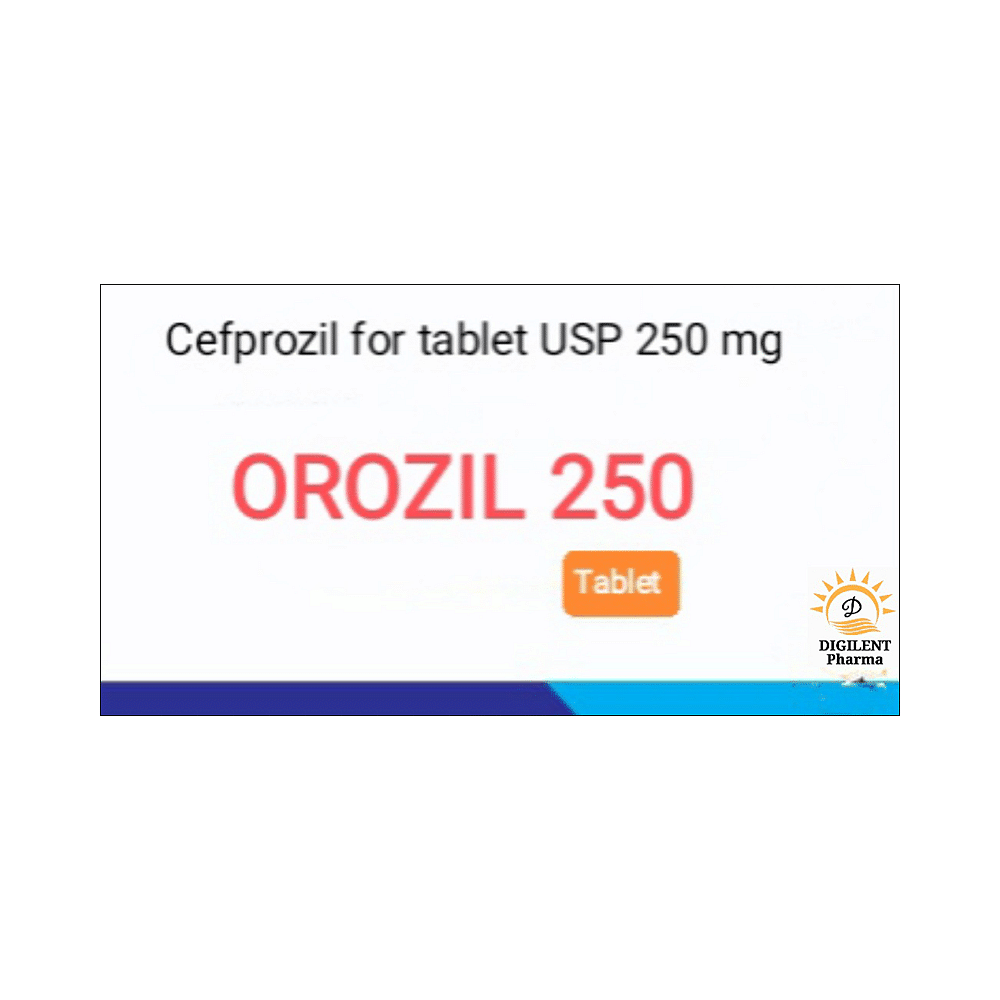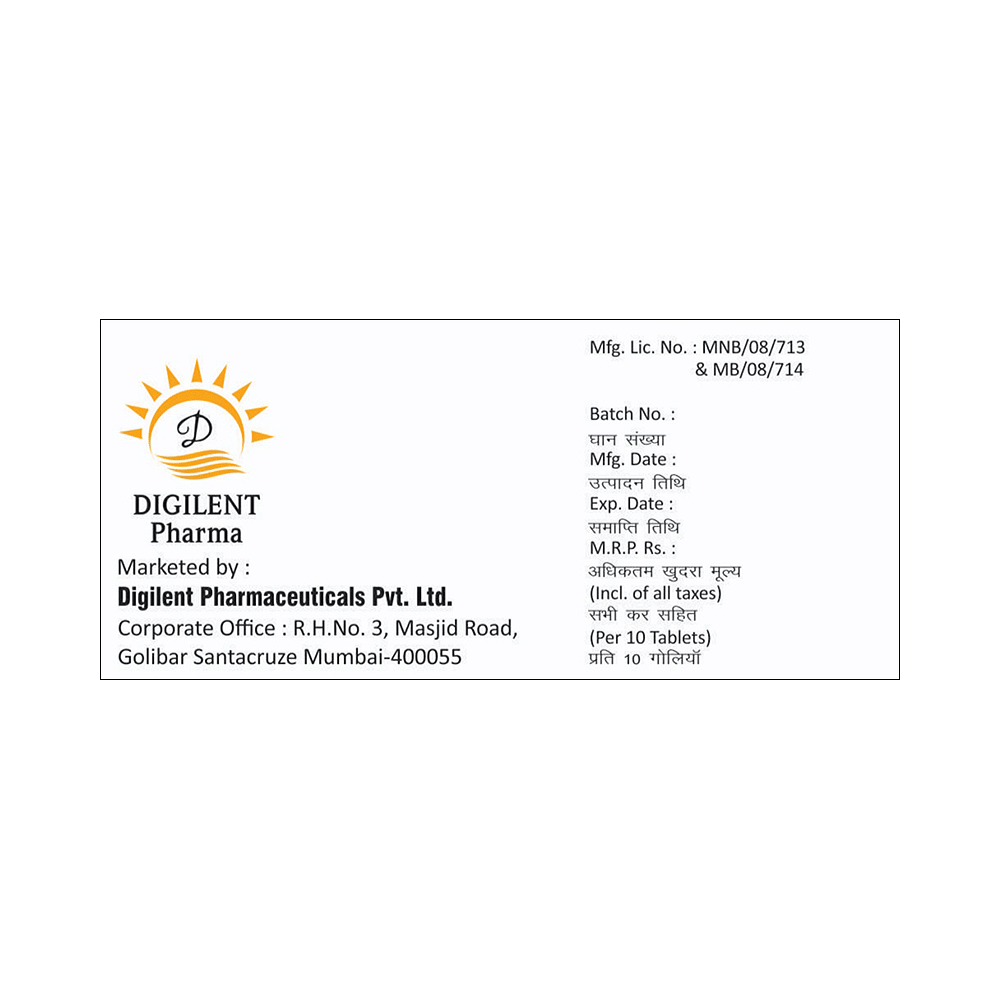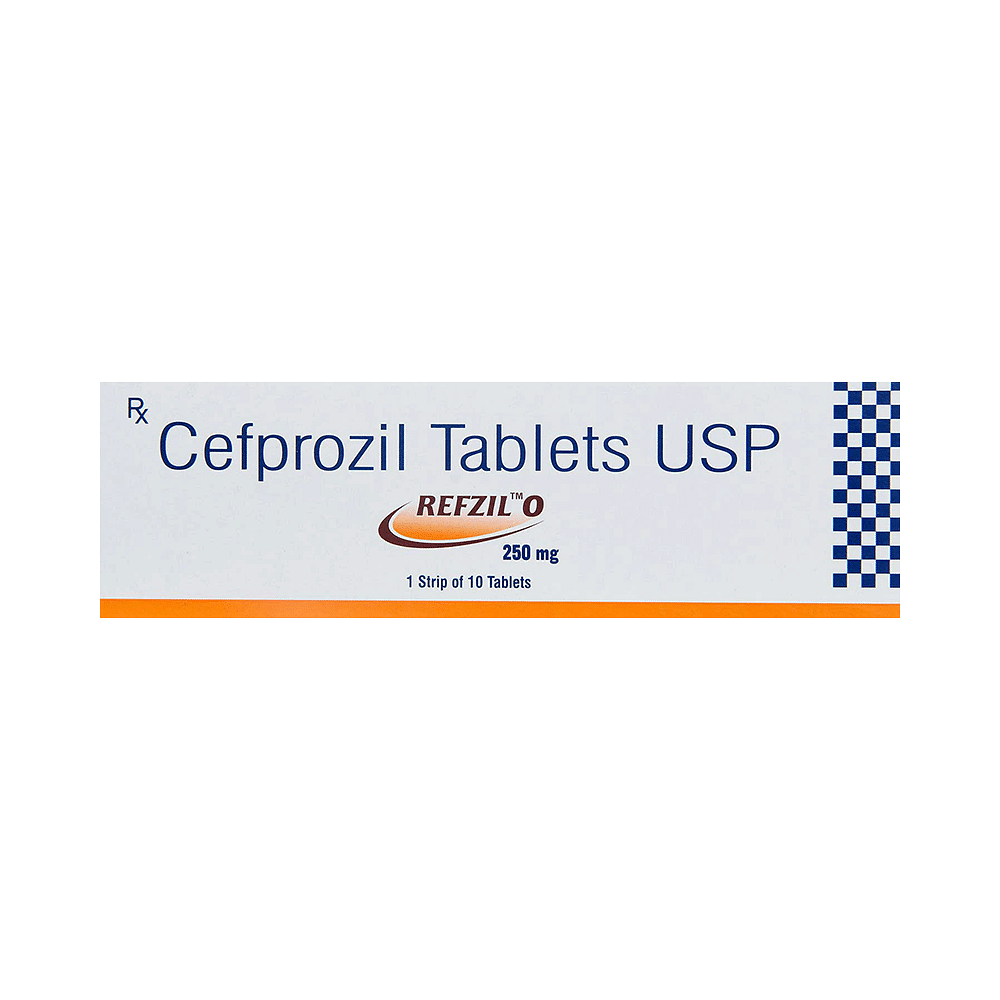

Orozil 250 Tablet
Manufacturer
Digilent Pharmaceuticals Private Limited
Salt Composition
Cefprozil (250mg)
Key Information
Short Description
Orozil 250 Tablet is an antibiotic medicine used to treat bacterial infections in your body.
Dosage Form
Tablet
Introduction
Orozil 250 Tablet may be taken with or without food. You should take it regularly at evenly spaced intervals as per the schedule prescribed by your doctor. Taking it at the same time every day will help you to remember to take it. The dose will depend on what you are being treated for but you should always complete a full course of this antibiotic as prescribed by your doctor. Do not stop taking it until you have finished even when you feel better. If you stop taking it early some bacteria may survive and the infection may come back. It will not work for viral infections such as flu or the common cold. Using any antibiotic when you do not need it can make it less effective for future infections.
Directions for Use
Take this medicine in the dose and duration as advised by your doctor. Swallow it as a whole. Do not chew, crush or break it. Orozil 250 Tablet may be taken with or without food but it is better to take it at a fixed time.
Safety Information
Side Effects
rash allergic reaction nausea stomach pain diarrhea
Alcohol Warning
Consuming alcohol with Orozil 250 Tablet does not cause any harmful side effects.
Breastfeeding Warning
Orozil 250 Tablet is safe to use during breastfeeding. Human studies suggest that the drug does not pass into the breastmilk in a significant amount and is not harmful to the baby. Avoid prolonged use of Orozil 250 Tablet, since it may have possible effects such as rash and diarrhea.
Pregnancy Warning
Orozil 250 Tablet is generally considered safe to use during pregnancy. Animal studies have shown low or no adverse effects to the developing baby; however, there are limited human studies.
How it works
Orozil 250 Tablet is an antibiotic. It kills the bacteria by preventing them from forming the bacterial protective covering (cell wall) which is needed for them to survive.
Quick Tips
Your doctor has prescribed Orozil 250 Tablet to cure your infection and improve your symptoms. Take it with food to avoid an upset stomach. Do not skip any doses and finish the full course of treatment even if you feel better. Discontinue Orozil 250 Tablet and inform your doctor immediately if you get a rash, itchy skin, swelling of face and mouth, or have difficulty in breathing. Diarrhea may occur as a side effect but should stop when your course is complete. Inform your doctor if it does not stop or if you find blood in your stools.
Related Medicines
Frequently asked questions
Does Orozil 250 Tablet treat cold or flu?
No, Orozil 250 Tablet is not intended for treating colds or the flu. It is an antibiotic prescribed to manage bacterial infections.
How should I take Orozil 250 Tablet?
Orozil 250 Tablet should be taken with food or milk to minimize stomach upset. Consuming the medication with food can enhance absorption and potentially accelerate recovery. It is important not to take Orozil 250 Tablet on an empty stomach, as it may trigger diarrhea (loose motions).
Can Orozil 250 Tablet cause thrush?
Yes, prolonged or repeated use of Orozil 250 Tablet can lead to thrush, a fungal or yeast infection. It is crucial to adhere to the prescribed dosage and duration advised by your healthcare provider. If you notice white patches in your mouth, genital area, or increased vaginal discharge while taking Orozil 250 Tablet, consult your doctor immediately.
Is Orozil 250 Tablet safe to use?
Orozil 250 Tablet is generally safe when used at the prescribed dose and duration as advised by your healthcare provider. However, it's essential to follow their guidance.
Is Orozil 250 Tablet an antibiotic?
Yes, Orozil 250 Tablet is an antibiotic, belonging to the cephalosporin family of antibiotics.
When should I stop taking Orozil 250 Tablet?
You must not stop taking Orozil 250 Tablet before completing the full prescribed course. While you may start feeling better sooner, completing the full duration as advised by your doctor is vital to ensure proper treatment.
How long does Orozil 250 Tablet take to work?
Orozil 250 Tablet typically starts working quickly after you take it. However, complete effectiveness may take some days as the medication takes time to kill harmful bacteria and alleviate symptoms.
What should I do if I don't improve with Orozil 250 Tablet?
Inform your doctor if you haven't experienced any significant improvement after completing the full course of medication. It is important to report worsening symptoms while taking this medicine.
Can Orozil 250 Tablet cause diarrhea?
Yes, Orozil 250 Tablet can induce diarrhea. This occurs because the antibiotic affects both harmful bacteria and beneficial bacteria in your digestive system. If you experience persistent diarrhea, consult your doctor about it.




